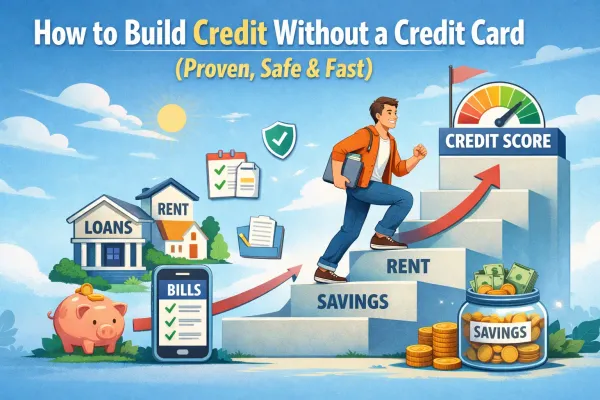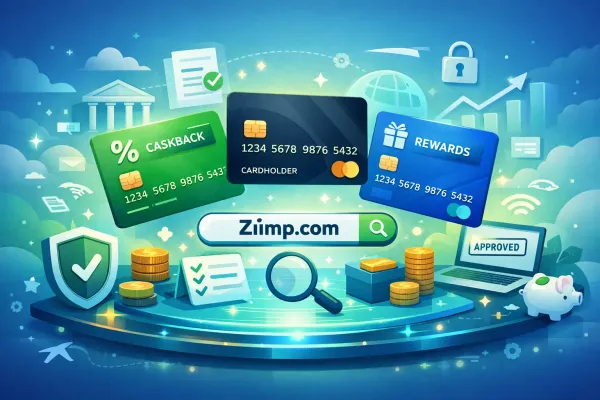How to Achieve Financial Independence

Achieving financial independence is a dream shared by many, yet it remains elusive for most. The allure of living life on your terms, free from the constraints of a traditional job, is powerful. But how do you make this dream a reality? This guide provides a roadmap to financial independence, offering actionable steps to help you take control of your finances, build wealth, and ultimately achieve the freedom you desire.
Introduction
Financial independence is the state of having sufficient personal wealth to live, without needing to work actively for basic necessities. It's about having the freedom to choose how you spend your time, whether it's pursuing your passions, traveling the world, or simply enjoying a stress-free retirement. While it might seem like an unattainable goal, with the right strategies and mindset, financial independence is within reach for anyone willing to put in the effort.
This article will explore various aspects of achieving financial independence, from setting goals and creating a budget to investing wisely and reducing expenses. Whether you're just starting your financial journey or looking to refine your approach, these tips will help you move closer to financial freedom.
Understanding Financial Independence
Before diving into the strategies, it’s crucial to understand what financial independence truly means. It’s not just about having a lot of money—it's about having enough passive income to cover your living expenses without relying on a paycheck. This means that your investments, savings, and other sources of income are sufficient to support your lifestyle.
Financial independence is often associated with the FIRE (Financial Independence, Retire Early) movement, which advocates for aggressive saving and investing to retire early. However, financial independence can also mean simply having enough financial security to make work optional or to retire at a traditional age with peace of mind.
Setting Financial Goals

The first step towards financial independence is setting clear, achievable financial goals. Without a target, it's impossible to measure progress or stay motivated. Your goals should be specific, measurable, attainable, relevant, and time-bound (SMART).
Start by defining what financial independence looks like for you. Do you want to retire early, or are you aiming to have enough savings to start your own business? How much money will you need to achieve this? Break down your long-term goals into smaller, short-term milestones. For instance, your first goal could be to save an emergency fund covering 3-6 months of expenses.
Creating a Budget
A budget is the foundation of financial independence. It helps you track income and expenses, ensuring that you're living within your means and saving for the future. Start by listing all your sources of income and then categorize your expenses—housing, food, transportation, entertainment, etc.
The key to a successful budget is balancing your expenses with your income. Prioritize needs over wants and look for areas where you can cut back. Remember, the more you save, the faster you can achieve financial independence. Regularly review your budget to make adjustments as needed and to ensure that you're on track with your financial goals.
Building an Emergency Fund
An emergency fund is a critical component of financial independence. It provides a financial cushion in case of unexpected expenses, such as medical emergencies, car repairs, or job loss. Aim to save at least three to six months' worth of living expenses in a readily accessible account, like a high-yield savings account.
Having an emergency fund ensures that you won't need to dip into your investments or take on debt when unexpected costs arise. This stability is crucial in your journey toward financial independence, as it protects your progress from setbacks.
Eliminating Debt
Debt is one of the biggest obstacles to financial independence. Whether it's credit card debt, student loans, or a mortgage, carrying debt means you're obligated to pay someone else before you can save or invest for yourself. To achieve financial independence, it's essential to prioritize paying off high-interest debt as quickly as possible.
Start by listing all your debts and their interest rates. Focus on paying off the debt with the highest interest rate first while making minimum payments on the others. Once the highest-interest debt is paid off, move on to the next one. This strategy, known as the debt avalanche method, will save you the most money in interest over time.
Saving and Investing
Saving and investing are at the heart of financial independence. The more you can save and invest, the faster you'll reach your financial goals. Start by saving a portion of your income each month—ideally, at least 20%. If that’s not possible, start with whatever amount you can and gradually increase it over time.
Investing is how you grow your savings and build wealth over time. Stocks, bonds, real estate, and mutual funds are all popular investment options. The key to successful investing is diversification—spreading your money across different asset classes to reduce risk.
For long-term goals, such as retirement, consider investing in tax-advantaged accounts like a 401(k) or IRA. These accounts offer tax benefits that can help your money grow faster. Don’t forget to take advantage of employer matching contributions if available—this is essentially free money that can significantly boost your savings.
Understanding Passive Income
Passive income is income earned with little to no effort. It's the key to financial independence because it allows you to generate income without actively working. Examples of passive income include rental income, dividends from investments, royalties from creative work, and interest from savings accounts.
Building passive income streams takes time and effort initially, but once they're established, they can provide a steady source of income that contributes to your financial independence. Consider investing in dividend-paying stocks, real estate, or creating a product or service that can generate royalties.
Reducing Living Expenses
Living below your means is essential to achieving financial independence. The lower your expenses, the more you can save and invest. This doesn’t mean depriving yourself of enjoyment but rather finding ways to reduce costs in areas that don’t add significant value to your life.
Look for ways to cut back on housing costs, such as downsizing or refinancing your mortgage. Consider cooking at home instead of dining out, using public transportation instead of owning a car, or finding free or low-cost entertainment options. Every dollar you save can be invested toward your financial independence.
Maximizing Income
While reducing expenses is important, increasing your income can accelerate your path to financial independence. Consider ways to boost your income, whether through a promotion at work, a side hustle, or passive income streams.
A side hustle can be a powerful tool for achieving financial independence. Whether it's freelancing, selling products online, or providing services in your community, a side hustle can generate additional income that you can save and invest. Additionally, improving your skills and education can lead to higher-paying job opportunities.
The Importance of Financial Education
Financial education is crucial in the journey to financial independence. The more you know about managing money, investing, and planning for the future, the better equipped you'll be to make informed decisions that align with your goals.
Make it a habit to read books, take courses, and follow financial experts to continually improve your financial literacy. Understanding concepts like compound interest, asset allocation, and tax planning will help you maximize your savings and investments.
The Role of Insurance in Financial Independence
Insurance is often overlooked but is a vital part of achieving financial independence. It protects your wealth and ensures that unforeseen events, such as illness, disability, or death, don’t derail your financial progress.
Ensure you have adequate health, life, and disability insurance to cover major risks. Additionally, consider liability insurance to protect your assets in case of lawsuits. The right insurance coverage provides peace of mind, knowing that your financial future is secure.
Planning for Retirement
Retirement planning is a significant aspect of financial independence. Even if your goal is not to retire early, having a solid retirement plan ensures that you can maintain your lifestyle without relying on others.
Start by estimating how much money you'll need in retirement. Consider factors like life expectancy, desired lifestyle, and healthcare costs. Use retirement calculators to help determine how much you should be saving and investing now to reach your retirement goals.
Regularly review and adjust your retirement plan as your circumstances and goals evolve. The earlier you start planning for retirement, the more time your investments have to grow, making it easier to achieve financial independence.
Mindset and Discipline
Achieving financial independence requires a mindset of discipline and perseverance. It's not enough to simply know what to do; you must also be consistent in applying these strategies over the long term.
Develop a habit of regularly reviewing your finances, sticking to your budget, and resisting the temptation to make impulsive purchases. Surround yourself with like-minded individuals who support your goals and can offer encouragement and advice.
Remember that the journey to financial independence is a marathon, not a sprint. There will be setbacks and challenges along the way, but with a disciplined approach, you can stay on track and reach your goals.
Avoiding Lifestyle Inflation
Lifestyle inflation, or the tendency to increase spending as your income rises, is one of the biggest threats to financial independence. It’s easy to fall into the trap of upgrading your lifestyle as you earn more money, but this can significantly delay your progress toward financial freedom.
To avoid lifestyle inflation, be mindful of your spending habits. Just because you can afford something doesn’t mean you should buy it. Instead, focus on increasing your savings and investments as your income grows. By keeping your expenses in check, you’ll accelerate your journey to financial independence.
The Power of Compound Interest
One of the most powerful tools in achieving financial independence is compound interest—the interest earned on interest. When you invest your money, it not only grows from the original principal but also from the interest it earns over time.
The earlier you start investing, the more you can take advantage of compound interest. Even small amounts invested regularly can grow significantly over time, making it easier to reach your financial goals.
Tax Planning Strategies
Effective tax planning can significantly impact your ability to achieve financial independence. By minimizing the amount of tax you pay, you can maximize the money you have available to save and invest.
Consider strategies like contributing to tax-advantaged retirement accounts, taking advantage of tax credits, and utilizing deductions. Working with a tax professional can help you identify opportunities to reduce your tax liability and keep more of your money working towards your financial goals.
Monitoring and Adjusting Your Plan
Achieving financial independence is not a set-it-and-forget-it process. It requires ongoing monitoring and adjustments to stay on track. Regularly review your financial plan, budget, and investments to ensure they align with your goals.
Life events such as marriage, children, or changes in income may require adjustments to your plan. Stay flexible and be willing to make changes as needed to continue progressing towards financial independence.
Living a Balanced Life
While financial independence is an admirable goal, it’s important not to lose sight of the bigger picture. Financial security is just one aspect of a fulfilling life. Ensure that you're also prioritizing your health, relationships, and personal well-being along the way.
A balanced approach to life ensures that you're not sacrificing your happiness or well-being for financial gain. After all, the ultimate goal of financial independence is to live a life of freedom and fulfillment.
Celebrating Milestones
The journey to financial independence can be long and challenging, so it’s important to celebrate your progress along the way. Acknowledging your achievements, whether it’s paying off a significant debt, reaching a savings milestone, or hitting an investment target, helps keep you motivated.
Celebrating milestones also reinforces the positive habits that are essential for long-term success. Take time to enjoy the fruits of your labor and reflect on how far you've come.
Avoiding Common Pitfalls
Several common pitfalls can derail your progress toward financial independence. These include taking on too much debt, failing to save consistently, investing without a plan, and neglecting to protect your wealth with insurance.
To avoid these pitfalls, stay disciplined, educated, and focused on your goals. Regularly assess your financial situation and make adjustments as needed to stay on track.
Creating a Legacy
Financial independence not only allows you to live the life you want, but it also allows you to create a lasting legacy. Whether it’s through charitable giving, supporting loved ones, or passing on wealth to future generations, achieving financial independence allows you to make a positive impact on the world.
Consider how you want to be remembered and what legacy you want to leave behind. This can be a powerful motivator in your journey towards financial independence and can guide your financial decisions.
FAQs
What is the first step to achieving financial independence?
The first step is setting clear, achievable financial goals. Define what financial independence means to you and break down your long-term goals into smaller, manageable milestones.
How much should I save each month to achieve financial independence?
Ideally, aim to save at least 20% of your income. However, if that's not possible, start with whatever amount you can and gradually increase it over time.
What is the difference between financial independence and retirement?
Financial independence means having enough passive income to cover your living expenses, making work optional. Retirement is often a stage of life where you stop working entirely, which typically requires financial independence to maintain your lifestyle.
How can I generate passive income?
Passive income can be generated through investments such as dividend-paying stocks, real estate, royalties from creative work, or interest from savings accounts.
Why is it important to avoid lifestyle inflation?
Lifestyle inflation can significantly delay your progress towards financial independence. By increasing spending as your income rises, you reduce the amount available to save and invest, which slows your path to financial freedom.
What role does insurance play in achieving financial independence?
Insurance protects your wealth and ensures that unforeseen events don’t derail your financial progress. It’s essential to have adequate health, life, and disability insurance to cover major risks.
Conclusion
Achieving financial independence is a journey that requires careful planning, discipline, and perseverance. By setting clear goals, creating a budget, saving and investing wisely, and avoiding common pitfalls, you can move closer to a life of financial freedom. Remember that financial independence is not just about accumulating wealth—it's about gaining the freedom to live life on your terms. Stay focused, be patient, and celebrate your progress along the way. With the right mindset and strategies, financial independence is within reach for anyone willing to put in the effort.




